Insurance claims may be infrequent, but they’re not completely unavoidable. Some HOAs carry insurance for many years without ever having to file a claim, so when the need arises, the prospect of filing a claim on behalf of the HOA may seem a bit intimidating. This is why it’s important that, as a board member, you know and understand your association’s coverage.
In general, it’s good practice for the board to review HOA insurance coverage on a regular basis – at minimum, your HOA’s policy should be reviewed annually. Because commercial insurance policies differ greatly from personal policies, the board may want to obtain quotes and ask questions by contacting a broker who specializes specifically in HOA coverage. Ask for a broker analysis; the broker can then review CC&Rs, management contract requirements, etc. with the board and community manager.
You could be liable for your actions as a board member. To help protect yourself and your community, make sure that your HOA is adequately covered for general liability (premise-based) and D&O liability (specialized; protects the board in situations of actions and decisions), as well as natural disasters (such as fire or flood). Also consider other types of coverage that may be needed, specific to your association’s particular region.
By taking the time to read HOA policies thoroughly and ask questions of your broker to ensure that coverages are sufficient, and by understanding that HOA insurance is commercial insurance coverage for multimillion dollar non-profit entities, the board can avoid troublesome situations.
In addition to reviewing and understanding your HOA’s coverage, it’s necessary to understand the process for filing a claim, should the need arise. Because commercial carriers utilize adjustors whose job it is to protect the company (which can result in the carrier paying out as little as possible to the insured), it’s essential that the board completes due diligence when submitting any claims.
Notify your HOA insurance carrier once proper steps have been taken to document loss by detailing various aspects of the claim. This includes obtaining estimates, taking photos, filing a police report if the situation warrants, gathering statements from witnesses, if applicable, and writing down a thorough report of circumstances leading up to the claim. When navigating commercial insurance, the insured, in effect, must prove to the carrier that the loss is covered. By providing the adjustor with a detailed and accurate claim, the board will save time and effort in the long run, and the adjustor will have relevant information necessary to process the claim.
Below are a few other tips to help the board when filing a claim:
- If homeowners are involved, be sure to get a detailed damage assessment.
- To avoid tension, miscommunication, or unnecessary conflict, be sure to communicate openly with stakeholders.
- Use insurance only when appropriate. Of course, you’ll need to file a claim if natural disaster strikes. Other claims are not as obvious. Insurance is not for maintenance, and filing multiple small claims that meet (or barely exceed) the deductible will cause high premiums, or worse – you could be dropped by the provider.
While these tips may be helpful, they don’t answer all the different scenarios that may occur when dealing with
HOA insurance. The steps of filing any claim depends on the type of claim; there are various factors involved. Because there is no standardization when dealing with commercial insurance, coverage is determined at time of loss. Some claims can be denied due to excluded coverage.
 Insurance claims may be infrequent, but they’re not completely unavoidable. Some HOAs carry insurance for many years without ever having to file a claim, so when the need arises, the prospect of filing a claim on behalf of the HOA may seem a bit intimidating. This is why it’s important that, as a board member, you know and understand your association’s coverage.
In general, it’s good practice for the board to review HOA insurance coverage on a regular basis – at minimum, your HOA’s policy should be reviewed annually. Because commercial insurance policies differ greatly from personal policies, the board may want to obtain quotes and ask questions by contacting a broker who specializes specifically in HOA coverage. Ask for a broker analysis; the broker can then review CC&Rs, management contract requirements, etc. with the board and community manager.
You could be liable for your actions as a board member. To help protect yourself and your community, make sure that your HOA is adequately covered for general liability (premise-based) and D&O liability (specialized; protects the board in situations of actions and decisions), as well as natural disasters (such as fire or flood). Also consider other types of coverage that may be needed, specific to your association’s particular region.
By taking the time to read HOA policies thoroughly and ask questions of your broker to ensure that coverages are sufficient, and by understanding that HOA insurance is commercial insurance coverage for multimillion dollar non-profit entities, the board can avoid troublesome situations.
In addition to reviewing and understanding your HOA’s coverage, it’s necessary to understand the process for filing a claim, should the need arise. Because commercial carriers utilize adjustors whose job it is to protect the company (which can result in the carrier paying out as little as possible to the insured), it’s essential that the board completes due diligence when submitting any claims.
Insurance claims may be infrequent, but they’re not completely unavoidable. Some HOAs carry insurance for many years without ever having to file a claim, so when the need arises, the prospect of filing a claim on behalf of the HOA may seem a bit intimidating. This is why it’s important that, as a board member, you know and understand your association’s coverage.
In general, it’s good practice for the board to review HOA insurance coverage on a regular basis – at minimum, your HOA’s policy should be reviewed annually. Because commercial insurance policies differ greatly from personal policies, the board may want to obtain quotes and ask questions by contacting a broker who specializes specifically in HOA coverage. Ask for a broker analysis; the broker can then review CC&Rs, management contract requirements, etc. with the board and community manager.
You could be liable for your actions as a board member. To help protect yourself and your community, make sure that your HOA is adequately covered for general liability (premise-based) and D&O liability (specialized; protects the board in situations of actions and decisions), as well as natural disasters (such as fire or flood). Also consider other types of coverage that may be needed, specific to your association’s particular region.
By taking the time to read HOA policies thoroughly and ask questions of your broker to ensure that coverages are sufficient, and by understanding that HOA insurance is commercial insurance coverage for multimillion dollar non-profit entities, the board can avoid troublesome situations.
In addition to reviewing and understanding your HOA’s coverage, it’s necessary to understand the process for filing a claim, should the need arise. Because commercial carriers utilize adjustors whose job it is to protect the company (which can result in the carrier paying out as little as possible to the insured), it’s essential that the board completes due diligence when submitting any claims.




